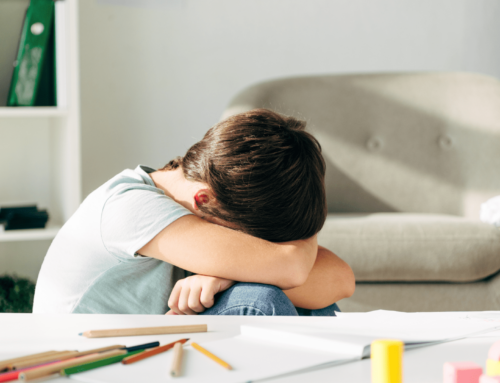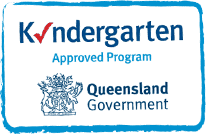Top tips to help you and your little one starts their early learning journey for the first time
By Kylie Dawson
Participate in the orientation program
At our centre we offer an orientation program to support you and your child in preparing to start their early learning journey, and this is something most services offer. Our program consists of “play and stay visits” where you and your child can come and visit and join in the fun in the days or weeks before you officially start. At the “play and stay visits” you get to explore the environments, meet educators, children and other families, participate in the program, learn about our routines, and find out where everything is. After your visits, recap the experience with your child; discuss the things you did and saw, and who you met, and get excited about the things your child will do and play with when they start.
Be prepared
Know what you need to bring and prepare it the night before. We provide families with a checklist of items to bring so they are all ready for their first day, so make sure you ask your centre what you need to bring and then you and your child can be all ready to go.
Have a messy play wardrobe
We do a lot of exploring at our service, and when we explore, we get messy! Don’t send your little one in their best clothes; raid the op shops for t shirts, shorts, and leggings (your wallet and the earth will thank you!) and buy shoes that are easy for you, and your child, to put on, and take off, because we have lots of “shoes-free” times.
Consider shorter days to start
For some children, starting off with shorter days can be really helpful and will assist them with easing into the program. For example, you might drop them off at your normal time in the morning and pick them up before rest time. Talk with your child’s educators about the day’s routine and if you decide that shorter days in the first few weeks would benefit your child, organise an earlier time to collect them. After your child has settled in, you can start stretching this time out week by week.
Label everything!
Put a label on their shoes, their socks, their hat, their shirts, their shorts, their dresses, their underwear, their bottles, their bag; everything! You have spent your hard-earned money on these items, and with so many children, and so much playing and mess making, things do go missing. When things are labelled, it is super easy for staff to return your items to you.
Pack, or ask your child to choose, a comfort item
Check with your child’s educators first, but at our centre we encourage parents to pack a photo of them with their child in a frame, or a comfort item, such as a soft toy or blanket. This can provide your child with a sense of security and connection to home. And remember to label it 😊
Crying is normal (and they, and you, will be supported)
It is normal and understandable that your child will cry when you drop them off on their first day. It is also normal if they don’t cry on the first day, but they cry on day two or three, or eight. If your little one is distressed at drop off time there are lot of things you, and the educators, can do to support them:
- Establish a consistent drop off routine:
- As you are driving to the centre, discuss what you will do when you get there: “We will go in the front door, wash our hands, and say Hi to Suzanne at the front desk. After that, we will go down to your room, put your bag away, and say Hi to your teachers. You really like the slide out the back, so we will go to the slide, and I will watch you go down once, and then I will give you a big cuddle and say goodbye, and Miss Cass and Miss Wendy will be there with you.” When you say goodbye, let your child know that you will be back after afternoon tea.
- If your child is an infant, or is not yet verbal, you can still establish a consistent drop off routine. You can tell them what is happening, and you can use your tone of voice and body language to show your child that you trust the educators and they are going to be safe at the centre. Spend some time with the educators chatting before passing your little one over and give your child a big cuddle before you go, looking them in the eyes and telling them you will be back later this afternoon.
- Talk to the educators about providing a consistent routine for greeting your child and let them know what your child likes, or needs, when they are upset.
- Don’t sneak away! As adults we think that if we sneak away our child will avoid the stress of saying goodbye, but it is important they have a chance to say goodbye. Sneaking away can create a lot of anxiety in your little one when it comes to arriving at the service each morning because one moment you are there, and then you are gone, and this is very distressing for little people. And even though we never want to see our child upset, experiencing what is sometimes called “negative emotions” is actually important for our little people. They learn that they can feel upset, and be supported, and that the emotion passes. They also learn what helps soothe them when they feel upset – their educators might cuddle them, they might find their special friend to play with in the sandpit, they might draw, or they might go and look at the fish in the fish tank and building this self-awareness about how they can support themselves when they are upset is very important.
Read the learning stories updates and discuss them with your child
At our centre, we use StoryPark to provide you with updates about the fun your child is having throughout the day. You can show these to your child when you are at home together and discuss what you see them doing in the photo. And share your thoughts and comments back with the educators; we love getting your feedback and learning as much as we can about your child and family. For example, maybe we shared a story and pictures about the children setting up an imaginary campsite, and your family loves camping, we would love to know that! The more we know about your child and family, the more we can plan engaging learning experiences, and the more opportunities we have to build a strong relationship with you and your child, which will in turn help them feel more settled, comfortable and confident.
Your child is (most likely) going to get sick
We have stringent cleaning and hygiene practices in place, however, when you have a large number of young children together, illness is bound to spread. Our little people’s immune systems are still getting used to the big wide world, and when your child’s first ventures into an early learning setting, their body comes into contact with lots of people and things they haven’t been exposed to before. Make sure you read and understand your centre’s illness policy, and help yourself, and your little one, by washing your, and their hands when you arrive at the centre, as you leave after drop off, when you arrive to do pick up, and when you both leave at the end of the day.
Ask questions and seek feedback
If you have any questions at all, don’t hesitate to ask your child’s educators, or the Centre Manager. Or, if you have feedback, please do share it with the centre team. And if you are unhappy about something, please raise it with us as soon as possible. We want to be able to provide you and your child with the best early education and service, and if something has happened, or there is something you are not happy with, we want to know about it so we can either provide further information to address misunderstandings or make changes to our practices so we can improve.




